33 Best Sci-Fi Movies of All Time Recommended by Critics
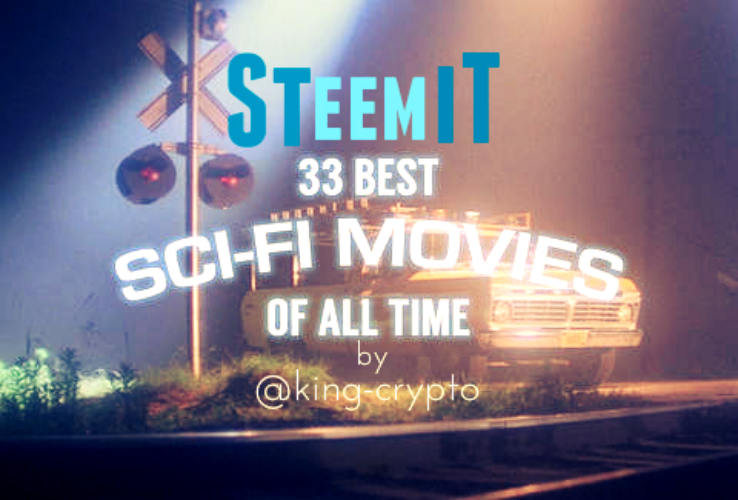
Science Fiction...
My favorite genre of book and film alike ever since I could read as I child. Provocative and thoughtful analysis of the world we may live in one day in the future, coming to life through word and screen. It sends my imagination wild.
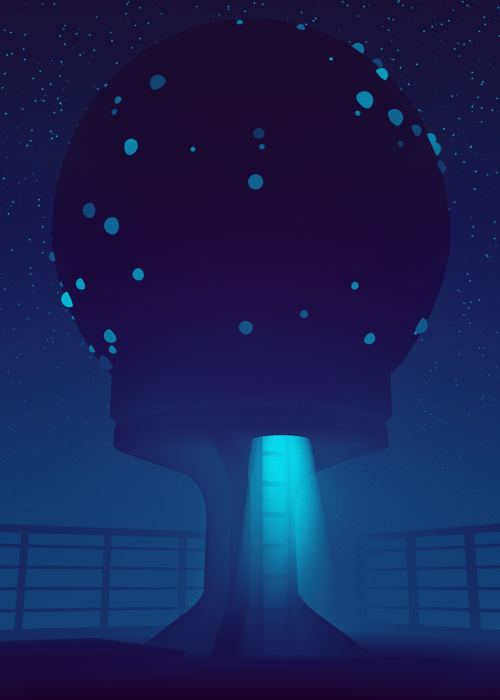
Sci-fi...
It's almost as old as cinema itself -1902’s Georges Méliès’ “A Trip To The Moon” is generally seen as the first example but it became hugely popular in late 20th century filmmaking in the aftermath of “Star Wars,” if also somewhat watered down. Many so-called sci-fi blockbusters were really action movies with some fantastical trappings, rather than thoughtful, provocative examinations of the world we live in through speculation about worlds we might live in.

Even though there has been some truly terrible examples that fall into the sci-fi genre, there have been absolute gems that have inspired a generation as well.
So here, I bring to you, the 33 best sci-fi movies of all time, recommended by the Critics!
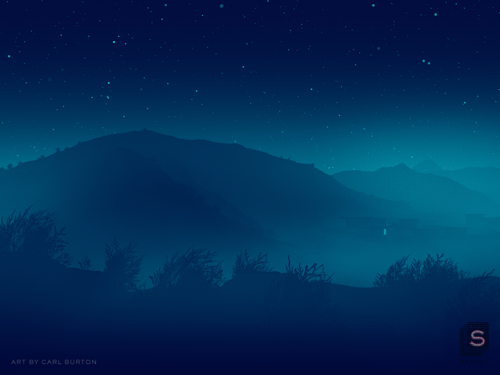
#33. Mad Max: Fury Road (2015)
Fury Road defied all expectations with its commanding action sequences and the resounding appeal of determined War Rig driver, Furiosa. Franchise director George Miller returns to his ideas of wasteland denizens scrabbling for survival years after wars over oil, this time to tear down images of sexual subjugation and discrimination. Sounds like a message movie, but what Fury Road really wants to drive home is the War Rig, right into tyrant Immortan Joe's skull.
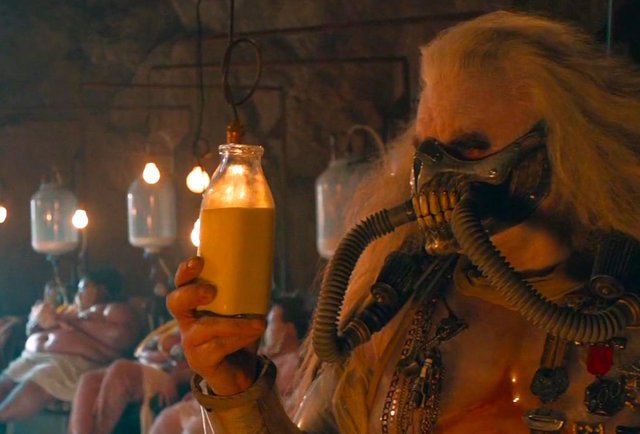
#32. Battle Royale (2000)
The premise of kids killing each other in a government-supported game has now been popularized to billion-dollar effect with the (very good) “Hunger Games” franchise, but if we were going to choose one film in this tiny sub-genre, it was always going to be “Battle Royale.” The final film from Kinji Fukasaku sees a class of high school students fixed with explosive collars and forced to kill each other as part of a scheme intended to curb teen disobedience. Lean, bloody, and with terrific action sequences (Quentin Tarantino called it his favorite film of the previous two decades), it’s also one of the best films ever released. It wasn’t released in the U.S. for eleven years, and is banned in Germany to this day.
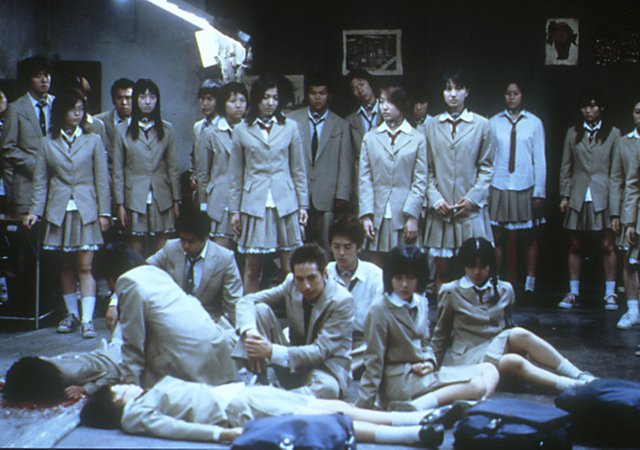
#31. Robocop (1987)
If you're into hyper-violent action movies, it has that. If you just like science fiction movies with cyborgs, you're covered. However, one thing that elevates Robocop from simply being a fun movie to becoming a great one is the satire. The film actually has something important to say about modern society, something that might be even more relevant today than it was in the 1980s. It's a smart film, that just so happens to have people turned into a red mist via high caliber machine guns.
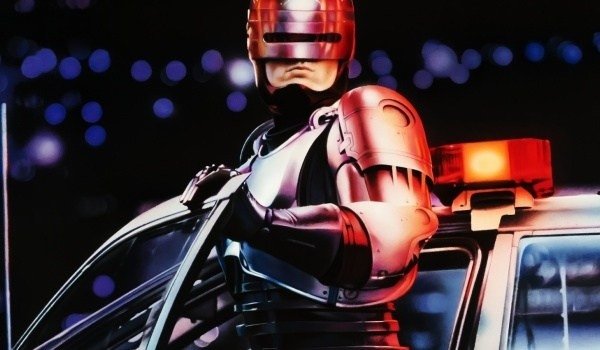
#30. Akira (1988)
An emerging young telepath wages increasingly more insane psychic battles against a future Toyko's military in this landmark anime. Sure, the middle third gets pretty talky, but between biker gangs, resistance agents, a secret group of powerful psychics, and big themes of government malfeasance and warmongering, the ambition and frequent effectiveness of Akira outweigh its shortcomings. Bonus points for the soundtrack, rich in percussion and chanted vocal rhythms, which is among the most distinctive in science-fiction film.

#29. Interstellar (2013)
Perhaps one of the most hotly contested films, sci-fi or otherwise, in recent memory, Christopher Nolan’s “Interstellar” received a host of polarizing and emotionally hot reactions. Nolan’s film is a dazzling, ambitious vision of love, time, space, and some deeper, perhaps fuzzier elements of the universe. It’s the place where the heart and quantum physics meet. While that might admittedly be a bit of an awkward intersection, its love-letter sincerity to humanity inspired by Nolan’s own children is at least visually awe-inspiring and occasionally breathtaking. Admittedly clunky in spots, it’s a film that will very likely only grow in estimation over time.
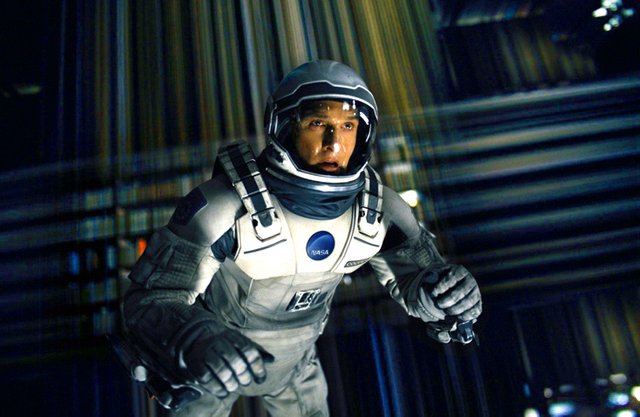
#28. The Fifth Element (1997)
Bruce Willis plays a cab driver who gets pulled into a fight for galactic survival by a beautiful woman played by Milla Jovovich. The premise is simple but thanks to delightfully fun characters like Chris Tucker's Ruby Rhod and a musical number that nobody will ever forget, this one will survive the test of time.
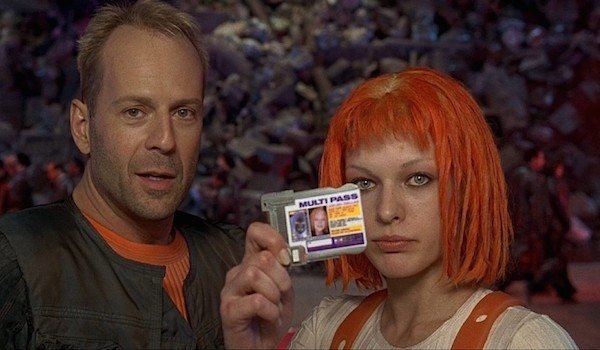
#27. 12 Monkeys (1995)
Who unleashed the rabid virus that nearly destroyed humanity, and can an unbalanced prisoner sent back in time gather enough information to create a cure? Terry Gilliam makes time travel even stranger than usual by deploying a vision of creaky, unreliable technology inspired by Chris Marker's landmark short film, La Jetee. Then he throws together twitchy young Brad Pitt and a Bruce Willis who still cared about his work to tell a downbeat, but uniquely funny story about how we're all doomed to destroy ourselves -- despite our best intentions.

#26. Dawn Of The Planet Of The Apes (2014)
Picking up after the ape-pocalypse, as Caesar (Andy Serkis) is forced to confront humanity again, as well as a new threat closer to home, the movie, even more than its predecessor, takes full advantage of the stunning performance-capture technology, which reaches something of an apex here. Beyond that, it’s also simply a remarkably well-told story: a rare summer blockbuster in which you actively root against violence taking place, with a borderline Shakespearean arc for its non-human hero, and Reeves’ stylish-but-unshowy filmmaking chops steering things beautifully.
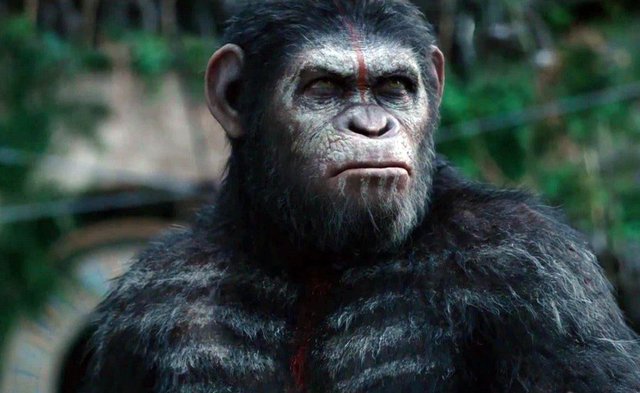
#25. Independence Day (1996)
Yes, it’s about as subtle as a starship in the face. But good God, it’s so much fun. Emmerich may not be as bold or as crafty a sci-fi satirist as his fellow Euro-export Paul Verhoeven, and on first release there were many who took all the flag-waving and Presidential speechifying in ‘Independence Day’ at face value. But look again, and this is a sly little slice of myth-busting entertainment. Who else had the balls to blow up the White House, full frame, just for kicks?

#24. Minority Report (2002)
It’s 2054. Scientists haven’t found the cure for the common cold, but they have reduced the murder rate to zero in Washington, DC, with ‘Pre-crime’ – a police unit that taps into a trio of psychic ‘precogs’ to predict murders and arrest the perpetrators before they do anything wrong.

#23. A Scanner Darkly (2006)
A higher-than-usual number of great sci-fi movies have been made from the work of legendary author Philip K. Dick, but few have been as faithful, or as weird, as Richard Linklater’s “A Scanner Darkly.” Set in a near-future where an undercover cop (a rarely-better Keanu Reeves) has infiltrated a group of junkies addicted to the hallucinatory Substance D, only to end up with a very Dick-ian identity crisis when he’s asked to spy on himself.
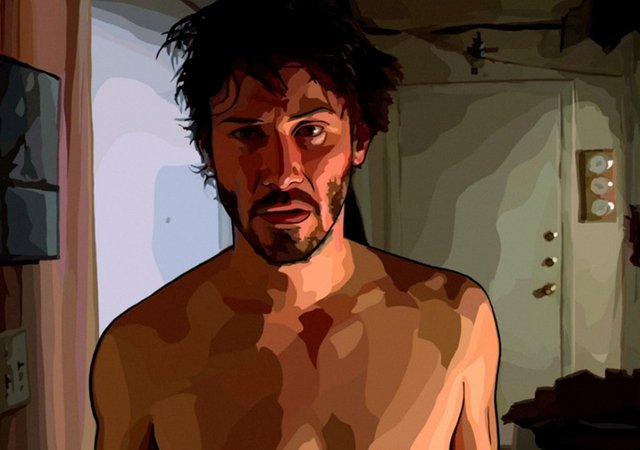
#22. Godzilla (1954)
The horror of nuclear weaponry is manifested as movie history's greatest monster in the signature science-fiction film from Japan. Monster movies had been around for decades, turning common fears into cinema boogeymen, but there was nothing quite like a giant lizard with radioactive breath and an oddly pleasing roar as a symbol for the dangers nuclear weapons posed to man and nature alike. The fact that Godzilla was such a perfectly designed creature helped, of course. This first film set in motion a series of wildly inventive characters and stories that rolls on even now.

#21. The Iron Giant (1999)
To adults, Brad Bird’s animated classic is a well-observed evocation of the anti-communist paranoia that permeated life in the 1950s – the golden age of sci-fi. To kids, it’s a universal tale of tolerance and trusting friendship; you could replace the giant with ET or Totoro and you’d have much the same film. It may be voiced by Vin Diesel, but the giant itself is a thing of beauty: a distant relative of the robots in ‘Castle in the Sky’ or ‘The King and the Mockingbird’, it conveys a wealth of emotions despite not saying or doing much at all.

#20. Ghost in the Shell (1995)
Far from a run-of-the-mill slice of millennial angst, ‘Ghost in the Shell’ abounds in mysteries and paradoxes. The film is Japanese, but the world appears to be a version of Hong Kong; the setting is futuristic, but the soundtrack features ancient Japanese chant; the main characters are robots, yet they can’t relinquish certain human obsessions. A strange and subtle work of anime.

#19. Avatar (2009)
Avatar is awe-inspiring, especially in 3D, and scored the film Oscars for Cinematography, Visual Effects and Art Direction. ‘Avatar’ is more than just a spectacle however: it’s a familiar yet heart-warming story of a military man who switches sides after integrating with a peaceful people.

#18. The Truman Show (1998)
Everything Truman experiences is cheerily alien; it consistently sends chills up the spine (why does his spouse keep talking about her home-care products like she’s shilling for them?). By the time the show’s man-behind-the-curtain Christof (Ed Harris, all wily benevolence) comes to the fore, the spooky surreality has reached a fever pitch.

#17. Back to the Future (1985)
Who says science fiction has to be super serious? There's nothing light about seeing yourself disappear from a family photo, but Robert Zemeckis' crowning achievement is great sci-fi even as it's funny as hell. Strip away all the comedy and "fish out of time, er, water" aspects of the scenario and you've got Marty McFly confronting his own limitations and the shortcomings of his parents. Back to the Future is a coming-of-age story for two generations at once, as neat and approachable a take on time-travel paradox as anyone has ever put on screen.

#16. Terminator 2: Judgment Day (1991)
With ‘Aliens’, James Cameron proved his mastery of the stakes-raising sequel. But in terms of budget, scope and epic action, ‘Terminator 2’ took it to a whole new level. Taking his sleek, speedy original ‘Terminator’, stripping it down to the chassis and then building it back up to the size of a Mack Truck, Cameron turned ‘T2’ into one of the cornerstones of blockbuster cinema – if it didn’t exist, movies today would look very different.

#15. Moon (2009)
Duncan Jones’s directorial debut is a quiet, simple little film, filled with enough nods back to the classic sci-fi of the ‘70s to give it whiplash. In its broadest sense, this is a movie about the dehumanising impact of technology, as Sam Rockwell’s lone astronaut waits impatiently to head home from his mining base on the moon. But it also deals with the sheer overwhelming monotony of everyday life and the crushing depression of solitude.

#14. Gattaca (1997)
We always dream that we can rise above our limitations, but what if those barriers were based on our genetic code? Vincent just wants to be an astronaut, though in a future where everyone is designed to be fit for a profession, he was conceived outside the genetic selection program. But, in Gattaca, you can't keep a good man down, especially if he has a steady supply of hair and fingernails from a more "superior" person, and the willingness to scam an entire society on a daily basis. Director Andrew Niccol's controlled vision avoids an excess of details and is all the more compelling for keeping things simple.

#13. The Matrix (1999)
That creaky old phrase ‘millennial angst’ was tossed around like so much confetti in the last few years of the twentieth century, but it fits ‘The Matrix’ like a black PVC glove. The ultimate expression of existential paranoia in sci-fi, the Wachowskis’s jet-speed cyber-action classic doesn’t just question the meaning of life, but its very existence.

#12. Blade Runner (1982)
Director Ridley Scott went out of his way to imagine 2019 Los Angeles as a pretty terrible place to be, and yet the look, sound, and feel of the world are so seductive that we want to visit regardless. Same goes for the story; Blade Runner's plot is a barely warmed-over detective yarn with Harrison Ford in the role of the hard-boiled investigator, but we can feel glimmers of the pain and confusion of artificial humans who realize they are powerless against their pre-determined fate. The movie is a triumph of world-building that still makes a mark on viewers and filmmakers 35 years later.

#11. ET the Extra-Terrestrial (1982)
The legend goes that, on the set of ‘Close Encounters’, François Truffaut suggested to Spielberg that his next movie should be something personal and honest, ‘a little film about kids’. When the Frenchman found out that said family flick would also involve a stranded alien, he laughed out loud. We reckon he was laughing on the other side of his impish visage when ‘ET’ went on to become the most successful film of all time.

#10. Close Encounters of the Third Kind (1977)
The story of the most powerful five-note jingle ever written is also the ultimate UFO movie. Here, those odd lights in the night sky really are from another world, and they start a roller coaster ride through uncertainty, terror, wonder, hope. As a regular guy who has his own close encounter with a non-human craft, Richard Dreyfuss carries us right into that zone where fascination becomes obsession. Spielberg slowly but masterfully draws together character threads to a convergence point at Devil's Tower in Wyoming, where humanity's ability to communicate is tested and ultimately validated in grand wordless conversation with a superior intelligence.

#9. The Empire Strikes Back (1980)
For perhaps the only time in the entire six-film sequence, George Lucas’s stated ambition to marry ’40s-style derring-do with modern-day SFX really reaches fruition: ‘Big Sleep’ writer Leigh Brackett’s script may have been all but junked by Lucas and rewriter Lawrence Kasdan, but her old-world sensibilities are all over the finished movie. Nowhere is this more true than in the feisty Bogart-Bacall interactions between rakish rogue Harrison Ford and ice princess Carrie Fisher: their on-set dust-ups may be legendary, but their on-screen chemistry is unmistakable.

#8. Alien (1979)
With a bunch of blue-collar stiffs just trying to get home, Ridley Scott's 1979 movie is, like many of the best sci-fi films, basically another genre kitted out with science-fiction elements. But what elements they are: that dingy ship, which suggests the future isn't so bright for regular slobs like the crew of the Nostromo, and the vicious killing machine found on a cold, dead planet. That alien, complete with a grossly sexual life-cycle and particularly violent tendencies, is one of the greatest creations in any film, a horrifying representation of all the things we simply have to fight, even when the battle seems futile.

#7. Metropolis (1927)
The mothership of all sci-fi – a masterpiece that set the template for robots, mad scientists, megacities and dystopian nightmares. It’s impossible to overstate the influence of ‘Metropolis’: the evil-twin robot of Freder’s lover Maria inspired C-3PO and the Replicants in ‘Blade Runner’, while Lang’s vision of a city of skyscrapers and elevated highways set the blueprint for futuristic cityscapes. Wells mocked the film’s underclass of workers, naively believing that technology would eliminate ‘the hopeless drudge stage’ of civilisation. But nearly 90 years on, the film’s depiction of slave labour has never seemed more relevant.

#6. Frankenstein (1931)
Modern medical science was in its infancy when Mary Shelley wrote about a doctor spawning new life out of dead old tissue. Her gothic novel is a prototype for whole swaths of science fiction; what could be more sci-fi than electrified technology enabling a man's godlike ambitions, and catastrophic results reminding us of his very un-godlike position? James Whale's 1931 film version isn't the first Frankenstein movie, but it is still among the very best, with a vision of the monster -- and the technology that creates him -- that is still persuasive almost a century later.

#5. Brazil (1985)
It's cute to think we can build systems that would make society run smoothly or create safer and better lives. If Terry Gilliam is right -- and he probably is -- those systems will eventually crush us all, and not by design, but through error and paperwork. Brazil envisions a wheezing, failing future where technology and government are woven into a societal prison where people are further apart from one another than ever. Mistaken raids like the one that kicks off the film happen all the time in our world, but Gilliam's vision remains potent and scary because the smothering creep of bureaucracy could still sneak up on us, and we'll probably think it is for our own benefit.

#4. Star Wars (1977)
A pop masterpiece that redefined an industry, ‘Star Wars’ updated sci-fi with unfashionable positivity, taking home a massive global haul that had studio execs salivating. It’s impossible to imagine what that game-changing summer must have felt like for teenagers accustomed to ‘Rollerball’ or ‘Logan’s Run’. Suffice it to say, the stakes were raised and the space blockbuster was born.

#3. The Fly (1986)
From the beginning of his career, director David Cronenberg luxuriated in empathy for his mind's most bizarre creations, whether the "children" of The Brood or the telepathic not-quite-X-Men of Scanners. Still, he's rarely forged a connection as deep as the one built between audiences and Jeff Goldblum's inventor Seth Brundle, whose impatient rush to test teleportation technology gives him an unexpected injection of house fly DNA. The guy's transformation into BrundleFly is every bit as freaky and weird as you'd expect from peak Cronenberg. Yet the film's triumph is making us feel the pain of Seth's transformation, rather than turning him into a monster we'd love to swat.
#2. Total Recall (1990)
If memory can be constructed, how do we know which of our memories are real? And if that’s the case, who are we? The script is bursting at the seams with wild ideas. Verhoeven is one of the all-time great action directors and the film is just crammed with indelible imagery: the detachable old-lady disguise; the mutant telepathic baby-thing (‘open your miiiiiiind…’); the universe’s freakiest whorehouse; and most of all that nutzoid rubber-head asphyxiation sequence, as Big Arn’s eyes literally start to pop out of his skull. Watch it and you’ll know how he feels.

#1. 2001: A Space Odyssey (1968)
A work of boundless inventiveness and imagination, Stanley Kubrick's 1968 film aims at nothing less than depicting the process of human evolution. Crafted in an era of crude special effects, the movie looks incredible, even now, with artificial images of spaceflight compelling enough to convince conspiracy theorists that Kubrick helped fake the moon-landing footage. With a big-picture view of human existence that sees little practical difference between a bone cudgel and a space station, 2001 envisions our biggest evolutionary leap as one that leaves technology behind to enter a realm of pure consciousness. Enjoy the grand and bitter irony of our greatest science-fiction film being one that imagines we eventually won't need technology at all.

Final Thoughts
Sci-fi, a terrific and inspiring genre with never ending possibilities, I love it. If you enjoyed you read yourself or you're a fan of scifi, leave me an upvote, follow or resteem! Heaps of effort went into this article! Thank you!
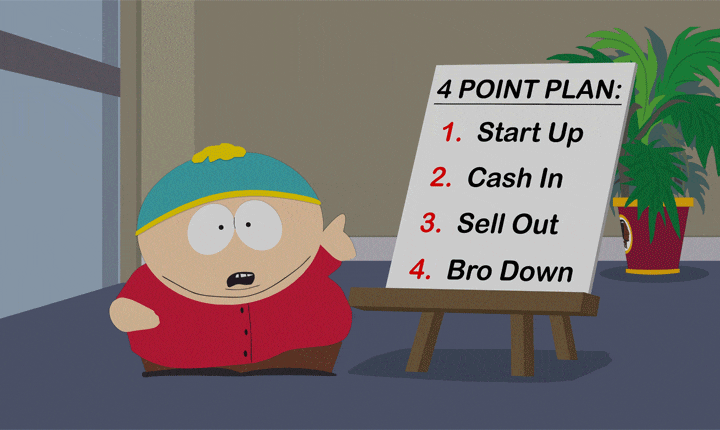
I also want to take a quick moment to make a Shoutout to some of the most important yet unmentioned people on this platform;
The Curators!
Throughout my time using the platform I've noticed there are people driving the quality content we see in the trending and hot pages. These people are part of the reason that Steemit is a remarkable platform. Not everyone likes to curate or even use steemit for it's true purposes, these people do.
So if you don't mind, drop over to the page of these un-sung heros and give them a follow for supporting our platform!
They are these people;
@starkerz @klye @kpine @sweetsssj
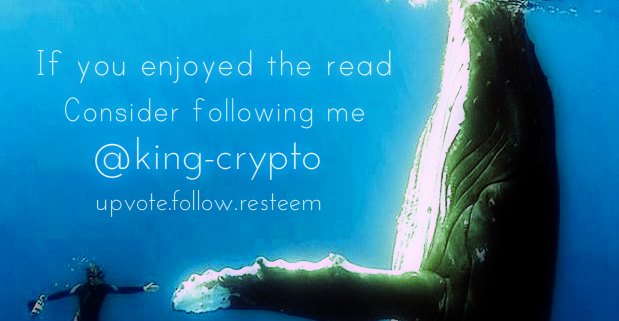

You missed inception..
Congratulations! This post has been upvoted from the communal account, @minnowsupport, by karthik from the Minnow Support Project. It's a witness project run by aggroed, ausbitbank, teamsteem, theprophet0, and someguy123. The goal is to help Steemit grow by supporting Minnows and creating a social network. Please find us in the Peace, Abundance, and Liberty Network (PALnet) Discord Channel. It's a completely public and open space to all members of the Steemit community who voluntarily choose to be there.
If you like what we're doing please upvote this comment so we can continue to build the community account that's supporting all members.
This comment has received a sweet gift of Dank Amps in the flavor of 17.86 % upvote from @lovejuice thanks to: @bhightech. Vote for Aggroed!
And "Looper", great movie always underrated.
Amazing list of movies. I have seen most of them, but I was surprised for having missed some of them.
Resteemed.
Whoa, the love! <3 I appreciate it so much @ghasemkiani
I love your content too, keep it coming! Thanks again!
Gattaca, my love.
okay, nice list
Thanks! Hours went into it, glad people enjoy it!
Lately i'm absolutely loving the platform and also the reward for quality.
Getting to know people from all around the world is awesome too! I really can't compare this platform to anything else it's brilliant.
I'm a huge fan of yours @fundurian keep the content coming!
Good choice, but I, as a scifi fan, too, I'd dare suggest some of the titles that, in my opinion, belong to this list:
Dune (1984) by David Lynch;
Johnny Mnemonic (1995) by Robert Longo;
Battlestar Galactica Razor (2007) and Blood and Chrome (2012);
Contact (1997) by Robert Zemeckis;
Immortal (2004) by Enki Bilal;
Elysium (2013) by Neill Blomkamp;
Oblivion (2013) by Joseph Kosinski;
The Chronicles of Riddick (2004) by David Twohy;
The Zero Theorem (2013) by Terry Gillian;
All great movies, I'm going to have to go with star wars and matrix :)
They are 2 of the very best! you seriously can't go wrong with star wars and the matrix!
Man, the matrix changed the way I looked at the world when I learnt about what the meaning of the movies are!
Ex Machina, Under the Skin, Edge of Tomorrow, The Thing, Jurassic Park, Arrival are way better than some of the movies that on this list.
Agreed. Ex Machina especially was a pleasant surprise to watch... I would also add Inception to the list!
Nice list! I watched all of these but "Akira" and "The Iron Giant".
Oh, you seriously have to check them out if you're a fan of the genre, don't let the artstyle fool you they are deep!
I have seen most of these movies.
The ones I have not seen (and I will check them out) are:
#14. Gattaca
#15. Moon
#20. Ghost in the Shell
#21. The Iron Giant
#22. Godzilla
#23. A Scanner Darkly
So, 6 out of 33. Not bad!
Thank you for this list.
A true Sci-Fi Veteran! Are any that are not on the list worth checking out? Maybe there are some I don't know of!
Really appreciate the thoughtful comment @vcelier! You're the best!
A great list for sure! Hey didn't the list miss out Star wars? I think it ought to be there. It's a great series of Sci-fi. Personally i also love aeon flux and tron legacy!
agree, this two deserves to be on a list :)